Speaker
Description
Tracking charged particles in high-energy physics experiments is a computationally intensive task. With the advent of the High Luminosity LHC, which is expected to significantly increase the number of proton-proton interactions per beam collision, the amount of data to be analysed will increase dramatically.
Traditional algorithms are local and suffer from this scaling. Global algorithms from machine learning are emerging for particle tracking. We are investigating the possibility of using machine learning techniques in combination with quantum computing algorithms.
In our work, we represent particle trajectories as a graph data structure and train a hybrid graph neural network with classical and quantum layers. We present recent results on the application of these methods, focusing on the characterisation of this architecture under different metrics and providing a critical overview of Hybrid QGNNs when applied to tracking.
Email Address of submitter
matteo.argenton@cern.ch
